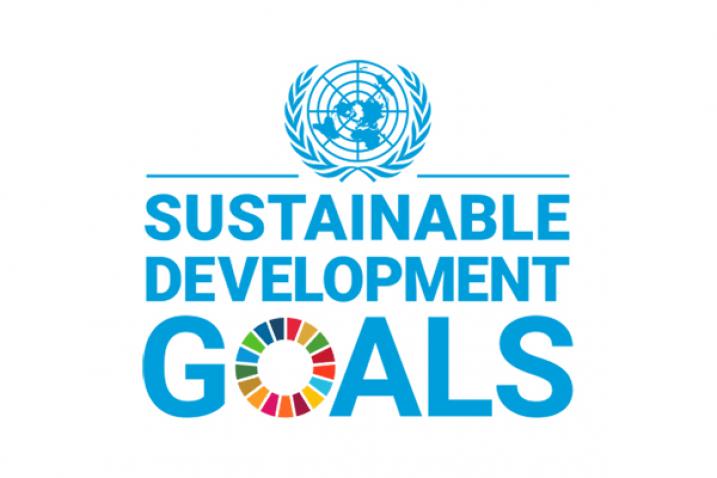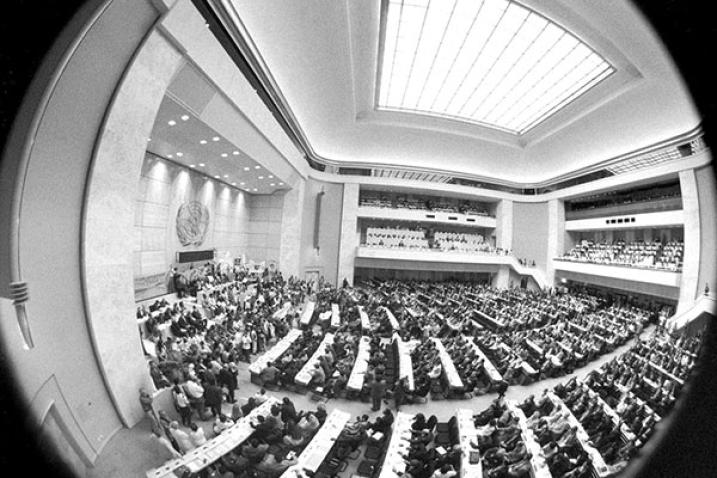Mobilization of Public Opinion
An essential part of the work on development consists of the mobilization of public opinion in both developing and developed countries in support of set objectives and policies. Governments of the more advanced countries must continue and intensify their endeavors to deepen public understanding of the inter-dependent nature of development efforts, and of the need to assist the developing countries in accelerating their economic and social progress. Similarly, Governments of developing countries must continue to make people at all levels aware of the benefits and sacrifices involved, and to enlist their full participation in achieving the development goals and objectives.
The mobilization of public opinion has to be the responsibility mainly of national bodies. Governments may give consideration to the establishment of new national bodies or to strengthening the existing ones designed to mobilize public opinion, as a long-term measure, to give increasing development orientation to the educational curricula. Considering that leadership can make a significant contribution to the mobilization of public opinion, the formulation of concrete aims by the competent authorities is indispensable.
The role of the organization of the United Nations has been to assist the various national information media, in particular by supplying adequate basic information from which these media may draw both substance and inspiration for their work.
In 1972, the General Assembly established World Development Information Day to draw the attention of the world to development problems and the need to strengthen international cooperation to solve them (resolution 3038(XXVII)). The Assembly decided that the date for the Day should coincide with United Nations Day, 24 October, which was also the date of the adoption, in 1970, of the International Development Strategy for the Second United Nations Development Decade.
The Assembly deemed that improving the dissemination of information and the mobilization of public opinion, particularly among young people, would lead to greater awareness of the problems of development, thus, promoting efforts in the sphere of international cooperation for development.
Background
Since the 1970s, Governments dedicated themselves to the fundamental objectives enshrined in the Charter of the United Nations to create conditions of stability and well-being and to ensure a minimum standard of living consistent with human dignity through economic and social progress and development. The launching of the First United Nations Development Decade in 1961 marked a major world-wide endeavor to give concrete substance to that solemn pledge. Since then, attempts have continued to adopt measures for that purpose.
Unfortunately, however, the standard of living for millions of people in the world is still pitifully low: they are often still undernourished, uneducated, unemployed and wanting in many basic amenities. Nonetheless, the current frustrations and disappointments must not be allowed to cloud the vision or stand in the way of the development objectives.
The success of international development activities depend in large measure on improvement in the general international situation that requires concrete progress particularly in the promotion of equal political, economic, social and cultural rights for all members of society.
The ultimate objective of development must be to bring about sustained improvement in the well-being of the individual and to bestow benefits on all. If undue privilege, extremes of wealth, and social injustice persist, then development fails in its essential purpose. The international community must rise to the challenge of the present age of unprecedented opportunities offered by science and technological advances, such that they may be equitably shared by all countries and, in turn, may contribute to the accelerated economic development throughout the world.
Science and Technology
Developing countries must continue to increase their expenditure on research and development. They must also continue their concerted efforts, with appropriate assistance from the rest of the world, in expanding their capability to apply science and technology for development, so as to enable the technological gap to be significantly reduced.
Full international cooperation must be extended for the establishment, strengthening and promotion of scientific research and technological activities, which have a bearing on the expansion and modernization of economies. Particular attention must be devoted to fostering technologies suitable for each country, and concentrated research efforts should be made in relation to selected problems - the solutions to which can have a catalytic effect in accelerating development.
New Solutions to Development Challenges
The information and communications technologies have the potential to provide new solutions to development challenges, particularly in the context of globalization, and can foster economic growth, competitiveness, access to information and knowledge, poverty eradication, and social inclusion that will help to expedite the integration of all countries, especially developing countries, in particular the least developed countries, into the global economy.
Furthermore, it is a well-established fact that information and communications technologies present new opportunities and challenges and that there is a pressing need to address the major impediments that developing countries face in accessing new technologies, such as insufficient resources, infrastructure, education, capacity, investment and connectivity, and issues related to technology ownership, standards and flows. In this regard, we call upon all stakeholders to provide adequate resources, enhanced capacity-building, and technology transfer on mutually agreed terms to developing countries.
The Digital Divide
However, there are concerns regarding the digital divide in access to information and communications technology tools and broadband connectivity between countries at different levels of development, which affects many economically and socially relevant applications in areas such as government, business, health and education, and further expresses concern with regard to the special challenges faced in the area of broadband connectivity by developing countries, including the least developed countries, small island developing States and landlocked developing countries. (A/RES/65/141)
Resources
Documents: General Assembly resolutions designating UN Development Decades
- Fourth UN Development Decade (1991-2000) (A/RES/45/199, 21 December 1990)
- Third UN Development Decade (1981-1990) (A/RES/35/56, 5 December 1980)
- Second UN Development Decade (1971-1980) (A/RES/2626 (XXV), 24 October 1970)
- First UN Development Decade (1960-1970) (A/RES/1710 (XVI), 19 December 1961)




